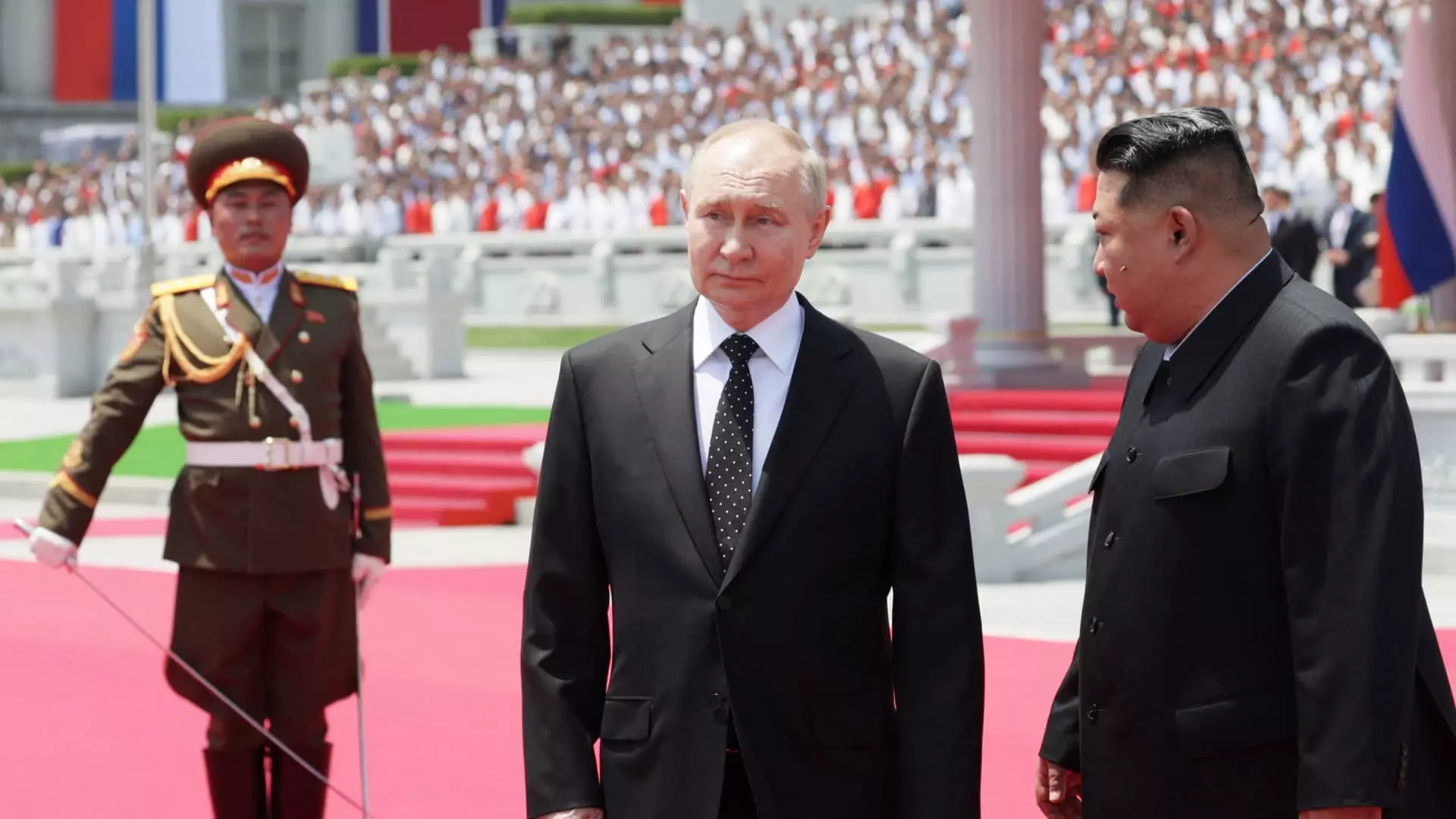The recent signing of a new “comprehensive strategic partnership” between Russia and North Korea has raised concerns among Western officials regarding the potential implications of this alliance. These concerns have been exacerbated by President Vladimir Putin’s first state visit to North Korea in 24 years, highlighting the growing ties between the two countries. The partnership, which includes a mutual defense pact, signals a deepening of political, economic, and security cooperation between Russia and North Korea.
During Putin’s visit to Pyongyang, he received a red carpet greeting from North Korean leader Kim Jong Un, along with a welcome ceremony attended by thousands. Russian state media reported that Kim expressed full support and solidarity with Moscow, praising Putin for Russia’s “special military operation” in Ukraine. In return, Putin gifted Kim with a new Aurus limousine, an admiral’s dagger, and a tea set, symbolizing the strengthening bond between the two countries.
The new comprehensive partnership agreement replaces previous treaties and covers various areas of cooperation, such as politics, economics, culture, humanities, and security. Putin emphasized the mutual assistance clause in the agreement, stating that the Russian Federation does not rule out military-technical cooperation with North Korea. This partnership is seen as a strategic move by both countries to enhance their regional influence and counter Western pressure.
Western countries, particularly NATO members, have closely monitored Putin’s visit to North Korea and the implications it may have on regional security. There is apprehension that Russia’s support for North Korea’s weapon programs could escalate tensions on the Korean Peninsula and have repercussions for South Korea. The potential for increased military cooperation between Russia and North Korea poses a significant challenge to global peace and stability.
While U.S. officials have expressed concerns about North Korean weapons supplies to Russia and the implications of increased cooperation between the two countries, there is uncertainty about the specific policy response from the Biden administration. The White House has warned against the growing Russia-North Korea ties, highlighting the need to address the potential threat posed by this partnership. However, the exact measures to counter this alliance remain unclear.
The alliance between Russia and North Korea presents a complex geopolitical challenge that requires careful monitoring and strategic responses from the international community. The implications of this partnership extend beyond regional dynamics and have the potential to impact global security. As tensions rise in the Korean Peninsula and Ukraine, the evolving relationship between Russia and North Korea will continue to shape the geopolitical landscape in the coming years.


Leave a Reply